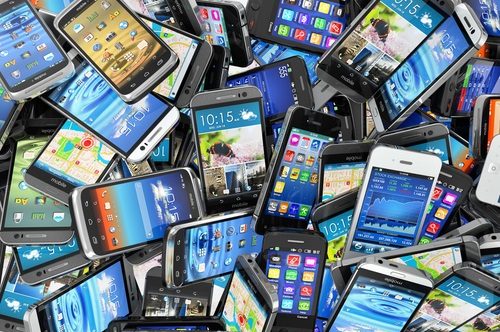Study links early smartphone use to severe mental health outcomes in young adults

The study's authors have recommended delaying smartphone and social media access for children under 13, enhancing digital literacy education and holding tech companies accountable for their platforms' effects on youth.
Children who are given smartphones before the age of 13, particularly girls, may experience more serious mental health challenges as they grow older, a new study published in the Journal of Human Development and Capabilities has revealed.
The study analysed data from over 100,000 young adults aged 18 to 24 who completed questionnaires detailing their mental health symptoms, including experiences of aggression, hallucinations, suicidal thoughts and emotional detachment.
More To Read
- Why smartphones before age 12 raise risks of depression, obesity and poor sleep
- Apple officially retires first-generation iPhone SE, marking end of an era
- Inside the rise of news influencers transforming media in Kenya, Nigeria and South Africa
- Faith under fire: How social media fuels rising attacks on religions, followers in Ethiopia
- Over 600 million children exposed to violence at home, UNICEF warns
- UNICEF warns over 400 million children live in extreme poverty as progress stalls
The findings showed a direct connection between earlier smartphone usage and increased severity of mental health symptoms. For each year a child owned a smartphone before age 13, researchers observed a decline in psychological well-being.
According to the study, both boys and girls who received smartphones at a younger age reported lower self-esteem.
Girls surveyed more frequently described emotional fragility and reduced confidence, while many boys reported difficulty remaining calm, emotionally stable and empathetic.
"The younger the child gets a smartphone, the more exposure to all this impacts them psychologically and shapes the way they think and view the world," Tara Thiagarajan, one of the study's authors, told ABC News.
Additionally, among young women who were given smartphones at age 5 or 6, 48 per cent reported experiencing severe suicidal thoughts, compared to 28 per cent of their peers who received phones at 13 or older. For young men, those figures were 31 per cent and 20 per cent, respectively.
Researchers attributed the gender differences in outcomes partly to social media use, which they said affects girls and boys differently. Other contributing factors cited include cyberbullying, poor sleep patterns and strained family relationships.
The study's authors have recommended delaying smartphone and social media access for children under 13, enhancing digital literacy education and holding tech companies accountable for their platforms' effects on youth.
"Ideally, children should not have a smartphone until age 14, and when they do get a smartphone, parents should take the time to discuss with their children how to interact on the Internet and explain the consequences of doing various things," Thiagarajan added.
The study's release aligns with broader efforts to curb early smartphone exposure with global social psychologists advocating for national guidelines on phone usage, including no smartphones before high school, no social media before age 16 and phone-free school environments.
Top Stories Today











































